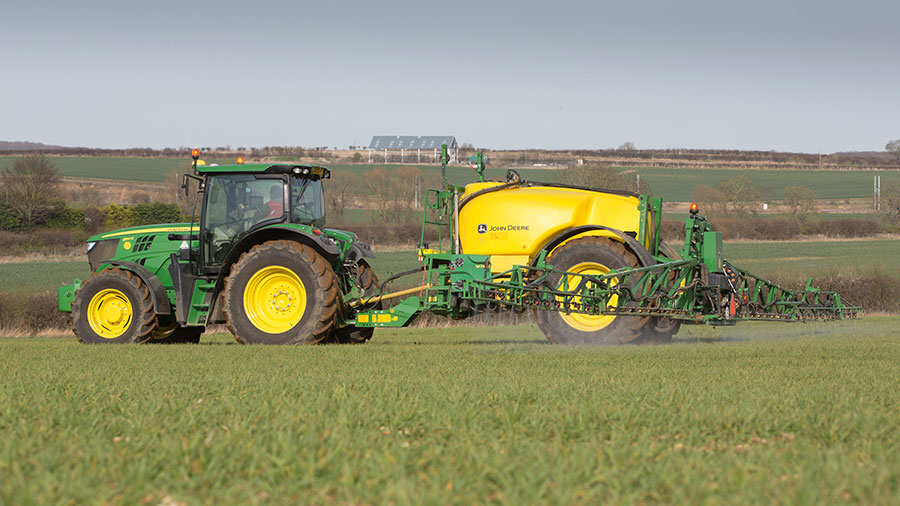New barley bio-fungicide on the horizon for 2026
 © Tim Scrivener
© Tim Scrivener A new bio-fungicide for use in barley and a herbicide option for peas and beans could be on the horizon for UK growers in 2026.
If label extensions are approved, a plant health elicitor, known as laminarin – which protects crops from fungal attack by activating their defence systems – will be available for use in barley.
See also: Harvest 2023 – New winter barley impresses in Yorkshire
Laminarin is currently approved for use in winter wheat and is derived from natural plant extracts and is the active ingredient of Iodus, one of the first biopesticides for use on winter wheat.
When applied before fungal pathogen attack, the active triggers the plant’s natural defence against fungal disease, mimicking the degraded cellular material released from a fungal attack.
Crop manufacturer UPL hopes the active will be available to barley growers by 2026.
This follows promising disease control trials from one application at the T0 timing at UPL’s Shray Hill research site in Shropshire.
Joanne Hawke, the firm’s trials manager for the UK highlights that this season has been a tough test for barley disease control programmes, with high levels of rhynchosporium and net blotch driven by wet spring weather.
Trial results revealed that when used at T0, laminarin helped reduce disease pressure throughout the programme by activating the plant systemically, including in newly formed tissue as it grows.
“Iodus has performed well in wheat crops on-farm this year, and it is good to see a strong level of performance on barley,” says Joanne.
We have applied for laminarin to be used in barley and hope it will be approved in time for farmers to benefit in the 2026 season.”
New pulse herbicide
The crop protection manufacturer is also seeking label extension for two well-known herbicides, clethodim and ethofumesate for use in both field beans and peas.
Despite the push to increase the area of pulses grown in the UK, herbicide control options remain a limiting factor affecting uptake of legumes in UK rotations.
As the manufacturer seeks approval for the two herbicides already used in sugar beet and oilseed rape, this may well be about to change.
“We hope to have both herbicides approved in pulse crops by the 2026 season,” announces Joanne Hawke, UPL trials manager for the UK.
“Farmers can expect a similar performance from the actives to what they get in sugar beet and oilseed rape, and we haven’t seen any crop safety issues when the guidelines are followed,” says Joanne.
